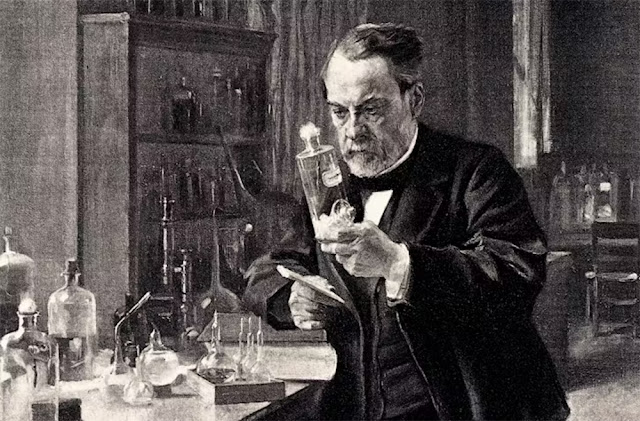Louis Pasteur: Pioneer of Microbiology and Immunology

Early Life and Education
Louis Pasteur was born on December 27, 1822, in Dole, France. He pursued his education at the École Normale Supérieure, where he earned a doctorate in sciences. Initially trained as a chemist, Pasteur's early work focused on the study of crystals and molecular asymmetry, laying the foundation for his later ventures into microbiology.
Contributions to Science and Medicine
Fermentation and Germ Theory
In the mid-19th century, Pasteur investigated the process of fermentation, demonstrating that microorganisms were responsible for converting sugars into alcohol in the absence of oxygen. This work led him to propose the germ theory of disease, asserting that specific microorganisms cause specific diseases—a revolutionary idea at the time.
Pasteurization
Building on his fermentation studies, Pasteur developed the process of pasteurization to prevent spoilage in beverages like wine and milk. By heating liquids to a specific temperature to kill harmful microbes, pasteurization became a standard method for ensuring food safety.
Disproving Spontaneous Generation
Pasteur conducted experiments that refuted the theory of spontaneous generation—the belief that life could arise from non-living matter. Using swan-neck flasks, he demonstrated that sterilized broth remained free of microbial life unless exposed to contaminants, supporting the idea that microorganisms originate from other microorganisms.
Chicken Cholera
In 1879, Pasteur discovered that weakened forms of the bacteria causing chicken cholera could be used to immunize chickens against the disease. This accidental finding marked the beginning of his work on vaccines.
Anthrax Vaccine
Pasteur applied his vaccination principles to anthrax, a disease affecting livestock. In 1881, he successfully demonstrated that inoculating animals with attenuated anthrax bacteria protected them from the disease, significantly impacting agriculture.
Rabies Vaccine
Perhaps Pasteur's most renowned achievement was developing the rabies vaccine. In 1885, he treated a young boy, Joseph Meister, who had been bitten by a rabid dog. Administering a series of injections with a weakened form of the virus, Pasteur successfully prevented the onset of rabies, saving the boy's life and validating his vaccination approach.
Legacy and Impact
Louis Pasteur's work laid the groundwork for modern microbiology and immunology. His germ theory transformed medical practices, leading to improved hygiene and sterilization techniques. The vaccines he developed have saved countless lives and continue to influence vaccine research today. In recognition of his contributions, the Pasteur Institute was established in Paris in 1888, serving as a leading center for biomedical research.
In 1879, Pasteur discovered that weakened forms of the bacteria causing chicken cholera could be used to immunize chickens against the disease. This accidental finding marked the beginning of his work on vaccines.
Anthrax Vaccine
Pasteur applied his vaccination principles to anthrax, a disease affecting livestock. In 1881, he successfully demonstrated that inoculating animals with attenuated anthrax bacteria protected them from the disease, significantly impacting agriculture.
Rabies Vaccine
Perhaps Pasteur's most renowned achievement was developing the rabies vaccine. In 1885, he treated a young boy, Joseph Meister, who had been bitten by a rabid dog. Administering a series of injections with a weakened form of the virus, Pasteur successfully prevented the onset of rabies, saving the boy's life and validating his vaccination approach.
Legacy and Impact
Louis Pasteur's work laid the groundwork for modern microbiology and immunology. His germ theory transformed medical practices, leading to improved hygiene and sterilization techniques. The vaccines he developed have saved countless lives and continue to influence vaccine research today. In recognition of his contributions, the Pasteur Institute was established in Paris in 1888, serving as a leading center for biomedical research.



Comments
Post a Comment